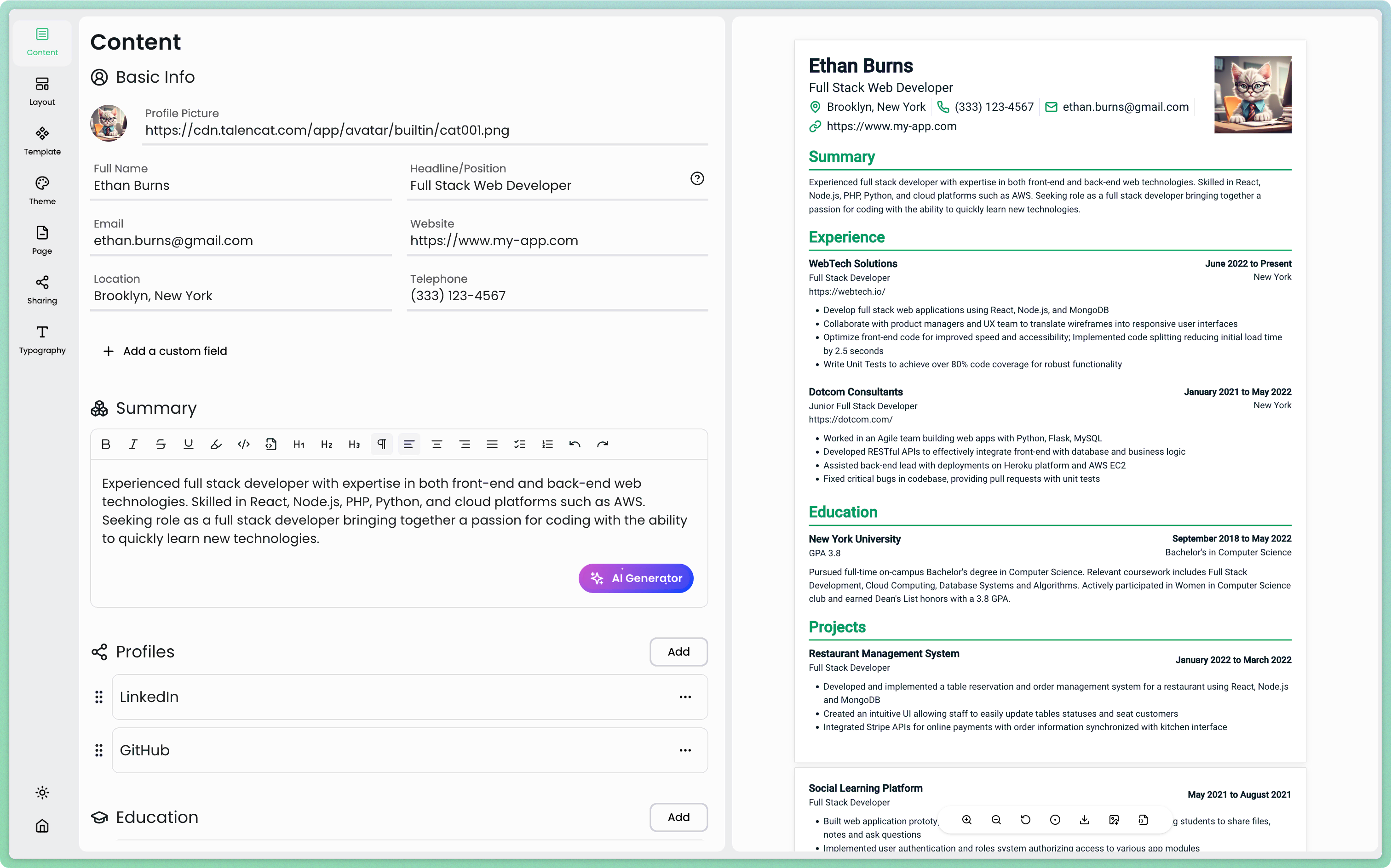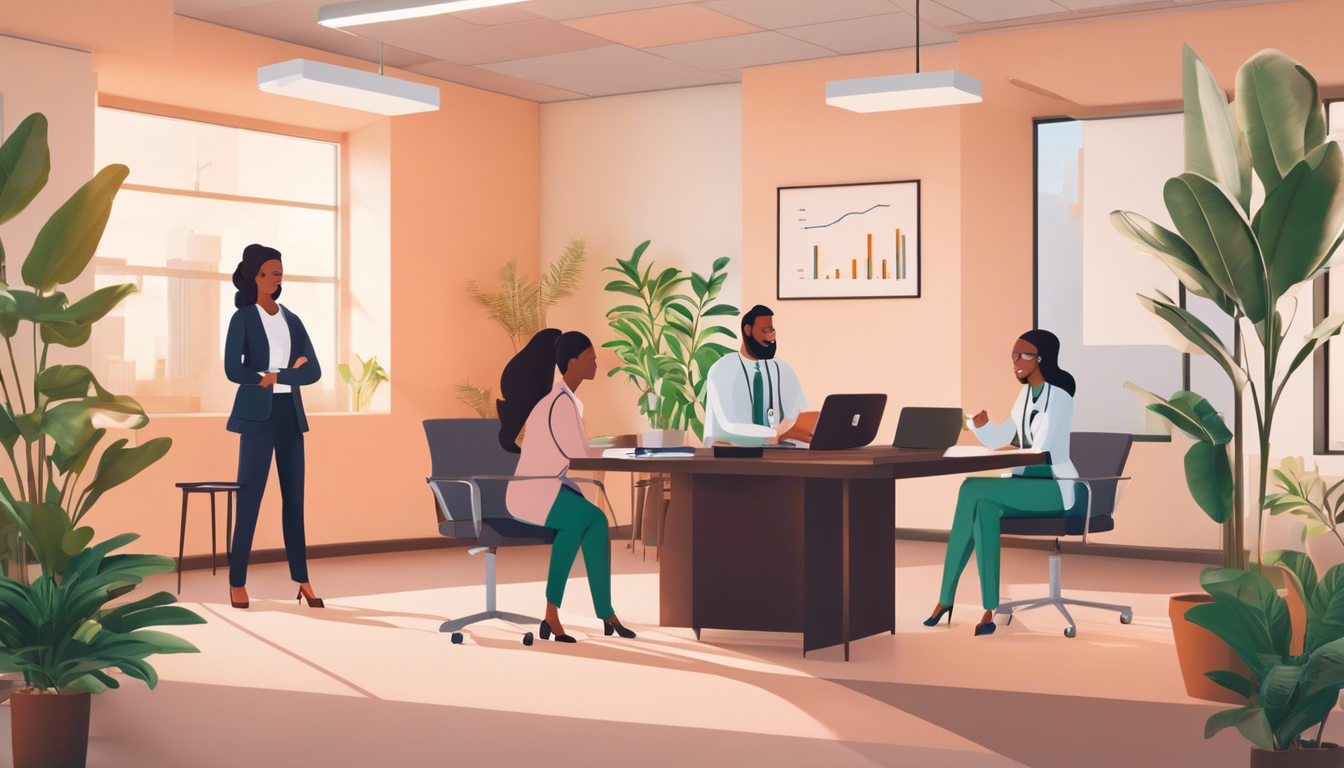Clinical supervision plays a crucial role in the healthcare industry, ensuring the quality of patient care and the professional development of healthcare practitioners. As the demand for skilled clinical supervisors continues to grow, it's essential for both job seekers and hiring managers to understand the intricacies of the interview process for this vital position. This comprehensive guide will explore the key aspects of clinical supervisor interviews, providing valuable insights and practical advice for success.
Introduction
Importance of Clinical Supervision
Clinical supervision is a cornerstone of effective healthcare delivery, providing a structured framework for professional growth, quality assurance, and patient safety. It serves as a bridge between theoretical knowledge and practical application, ensuring that healthcare professionals maintain high standards of care while continuously improving their skills.
Purpose of the Article
This article aims to equip both aspiring clinical supervisors and hiring managers with the knowledge and tools necessary to navigate the interview process successfully. By exploring common interview questions, key responsibilities, and essential skills, we'll provide a comprehensive roadmap for preparing for and conducting clinical supervisor interviews.
Overview of Clinical Supervisor Role
Before delving into the specifics of interview questions, it's crucial to understand the multifaceted role of a clinical supervisor. This understanding will help candidates prepare more effectively and enable interviewers to assess applicants more accurately.
Key Responsibilities
Clinical supervisors are tasked with overseeing the work of healthcare professionals, ensuring adherence to best practices, and facilitating professional development. Their responsibilities typically include:
- Providing guidance and support to supervisees
- Monitoring and evaluating clinical performance
- Facilitating reflective practice and critical thinking
- Ensuring compliance with ethical and legal standards
- Promoting evidence-based practice
- Managing team dynamics and fostering a positive work environment
Required Skills and Qualifications
To excel in this role, clinical supervisors should possess:
- Advanced clinical expertise in their field
- Strong leadership and communication skills
- The ability to provide constructive feedback
- Excellent problem-solving and decision-making abilities
- A commitment to ongoing professional development
- Cultural competence and sensitivity
Common Interview Questions for Clinical Supervisors
Preparing for a clinical supervisor interview involves anticipating and practicing responses to a variety of questions. Here, we'll explore some common questions across different categories, along with expert insights on how to approach them.
General Questions
Experience and Background
Sample Question: "Can you describe your experience in clinical supervision and how it has prepared you for this role?"
Expert Answer: "My journey in clinical supervision began five years ago when I was appointed as a senior clinician in a busy metropolitan hospital. Since then, I've supervised a diverse team of healthcare professionals, including nurses, therapists, and junior doctors. This experience has honed my ability to provide constructive feedback, manage complex cases, and foster a culture of continuous learning. I've also completed specialized training in supervision techniques and stay updated with the latest evidence-based practices in my field. This combination of hands-on experience and ongoing education has equipped me with the skills to effectively guide and support healthcare professionals in delivering high-quality patient care."
Motivation and Interest in the Role
Sample Question: "What motivates you to pursue a career in clinical supervision?"
Expert Answer: "My passion for clinical supervision stems from a deep-seated desire to contribute to the growth of healthcare professionals and, by extension, improve patient outcomes. I find immense satisfaction in mentoring others, sharing knowledge, and witnessing the positive impact of effective supervision on both individual practitioners and the healthcare system as a whole. The dynamic nature of this role, which requires continuous learning and adaptation, aligns perfectly with my personal and professional values. I'm driven by the opportunity to shape the next generation of healthcare providers and to play a part in advancing the quality of care in our community."
Situational Questions
Handling Difficult Situations
Sample Question: "How would you handle a situation where a supervisee consistently fails to meet performance standards despite your guidance?"
Expert Answer: "In such a situation, I would first ensure that I have a clear understanding of the performance issues and have documented them objectively. I'd then schedule a private meeting with the supervisee to discuss the concerns openly and collaboratively. During this meeting, I would listen to their perspective, identify any underlying issues or barriers to performance, and work together to develop a specific improvement plan with measurable goals and timelines. I'd increase the frequency of our supervision sessions and provide additional support or resources as needed. If the performance issues persist, I would involve HR and follow the organization's protocols for performance management, ensuring that all steps are documented and the supervisee is given fair opportunities to improve."
Ethical Dilemmas
Sample Question: "Describe a time when you faced an ethical dilemma in your supervisory role. How did you handle it?"
Expert Answer: "I once encountered a situation where a supervisee confided in me about a colleague's potential substance abuse issue that was affecting patient care. This presented an ethical dilemma as I had to balance the confidentiality of the supervisee's disclosure with the paramount importance of patient safety. I approached this by first thanking the supervisee for bringing this to my attention and reassuring them of the appropriate handling of the information. I then consulted our organization's policies and sought advice from the ethics committee, maintaining confidentiality throughout. Based on this guidance, I initiated a discreet investigation, which confirmed the concerns. I then worked with HR and senior management to address the issue directly with the affected colleague, ensuring they received the necessary support while also implementing measures to safeguard patient care. This experience reinforced the importance of having clear protocols for handling such sensitive issues and the value of seeking appropriate guidance when faced with complex ethical dilemmas."
Behavioral Questions
Team Collaboration
Sample Question: "Can you provide an example of how you've fostered collaboration within a multidisciplinary team?"
Expert Answer: "In my previous role, I led a multidisciplinary team comprising physicians, nurses, physiotherapists, and social workers in a rehabilitation unit. To enhance collaboration, I implemented regular case conferences where team members could share insights and develop comprehensive care plans. I also introduced a digital platform for real-time communication and updates on patient progress. To address initial resistance from some team members, I organized team-building activities and workshops on effective interdisciplinary communication. These efforts resulted in improved patient outcomes, reduced length of stay, and increased job satisfaction among team members. This experience taught me the importance of creating structured opportunities for collaboration while also fostering an environment of mutual respect and open communication."
Conflict Resolution
Sample Question: "Describe a time when you had to mediate a conflict between team members. What was your approach, and what was the outcome?"
Expert Answer: "I once faced a situation where two senior clinicians on my team had a disagreement over treatment approaches for a complex case. The conflict was affecting team morale and potentially impacting patient care. I addressed this by first meeting with each clinician separately to understand their perspectives fully. Then, I facilitated a joint meeting where I encouraged both parties to express their views respectfully and listen actively to each other. I guided the discussion towards finding common ground and exploring evidence-based practices relevant to the case. We agreed on a compromise that incorporated elements from both approaches and established a protocol for handling similar situations in the future. This experience reinforced the importance of active listening, impartiality, and focusing on shared goals in conflict resolution. The outcome was not only a resolution to the immediate conflict but also an improved process for addressing clinical disagreements, which ultimately enhanced our team's collaborative culture."
Specific Areas of Focus in Interviews
When interviewing for a clinical supervisor position, certain areas require particular attention. These topics often reveal a candidate's depth of understanding and readiness for the role.
Supervision Style and Philosophy
Interviewers are keen to understand a candidate's approach to supervision. This includes their methods for providing feedback, supporting professional growth, and maintaining a balance between guidance and autonomy.
Sample Question: "How would you describe your supervision style, and how do you adapt it to meet the needs of different supervisees?"
Expert Answer: "My supervision style is primarily collaborative and strengths-based. I believe in creating a safe, supportive environment where supervisees feel comfortable sharing challenges and exploring solutions. I adapt my approach based on the individual's experience level, learning style, and the specific situation at hand. For instance, with newer professionals, I might take a more directive approach, providing clear guidance and frequent check-ins. With more experienced supervisees, I tend to be more facilitative, encouraging self-reflection and problem-solving. I also believe in the importance of modeling best practices and continuous learning. Regardless of the supervisee's level, I always strive to maintain a balance between support and challenge, ensuring that our supervision sessions contribute to their professional growth and ultimately enhance patient care."
Cultural Competence and Diversity
In today's diverse healthcare environment, cultural competence is crucial. Interviewers often explore a candidate's experience and approach to working with diverse populations and fostering an inclusive environment.
Sample Question: "How do you ensure cultural competence in your supervisory practice, and can you provide an example of how you've addressed cultural differences in a supervisory relationship?"
Expert Answer: "Ensuring cultural competence is an ongoing process that I prioritize in my supervisory practice. I start by maintaining an open dialogue about cultural differences and their impact on healthcare delivery. I encourage supervisees to reflect on their own cultural backgrounds and biases, and how these might influence their interactions with patients and colleagues. I also stay informed about the cultural demographics of our patient population and seek out resources and training to enhance my own cultural knowledge.
In one instance, I supervised a clinician who was struggling to build rapport with patients from a particular cultural background. I arranged for cultural competency training for the entire team and paired the clinician with a mentor who had extensive experience working with that community. We also discussed specific cases during our supervision sessions, exploring cultural factors that might be influencing patient interactions. This approach not only improved the clinician's effectiveness but also raised cultural awareness across the team, leading to better patient outcomes and satisfaction."
Professional Development and Training
Clinical supervisors play a crucial role in facilitating the professional growth of their supervisees. Interviewers often seek to understand a candidate's approach to ongoing learning and development.
Sample Question: "How do you stay current with developments in your field, and how do you incorporate this into your supervisory practice?"
Expert Answer: "Staying current in the field is crucial for effective supervision. I maintain my knowledge through a combination of strategies. Firstly, I'm an active member of several professional associations and regularly attend conferences and workshops. I also subscribe to relevant journals and participate in online forums discussing the latest research and best practices. Additionally, I'm part of a peer supervision group where we discuss challenging cases and share insights.
In my supervisory practice, I incorporate this ongoing learning in several ways. I often bring relevant research articles or case studies to supervision sessions for discussion, encouraging critical thinking and evidence-based practice. I also organize in-service training sessions where team members can share knowledge from conferences or workshops they've attended. When I come across new techniques or approaches, I discuss them with my supervisees and explore how we might implement them in our practice. This not only keeps our team updated but also fosters a culture of continuous learning and improvement."

Preparing for a Clinical Supervisor Interview
Thorough preparation is key to success in any interview, particularly for a role as complex and demanding as a clinical supervisor. Here are some strategies to help candidates prepare effectively.
Researching the Organization
Before the interview, it's crucial to gain a comprehensive understanding of the organization you're applying to. This includes:
- Reviewing the organization's mission, values, and strategic goals
- Understanding the patient population and services provided
- Familiarizing yourself with the organization's approach to clinical supervision and professional development
- Researching recent initiatives or changes within the organization
This knowledge will not only help you tailor your responses to interview questions but also demonstrate your genuine interest in the role and the organization.
Practicing Responses to Common Questions
While it's impossible to predict every question you'll be asked, practicing responses to common interview questions can help you feel more confident and articulate during the actual interview. Consider the following strategies:
- Review the common questions discussed earlier in this article and prepare concise, relevant responses
- Use the STAR method (Situation, Task, Action, Result) to structure your answers to behavioral questions
- Practice with a friend or mentor who can provide feedback on your responses
- Record yourself answering questions and review the recordings to identify areas for improvement
Remember, the goal is not to memorize scripted answers but to become comfortable discussing your experiences and approach to clinical supervision.
Questions to Ask the Interviewer
Preparing thoughtful questions to ask the interviewer demonstrates your interest in the role and helps you gather important information about the position and organization. Consider asking:
Sample Questions:
- "Can you describe the team I would be supervising and their current challenges?"
- "What opportunities for professional development are available for clinical supervisors in your organization?"
- "How does the organization measure the effectiveness of clinical supervision?"
- "What are the key priorities for this role in the first six months?"
Expert Insight: Asking insightful questions not only helps you gather valuable information but also showcases your critical thinking skills and genuine interest in the role. It's an opportunity to demonstrate your understanding of the complexities of clinical supervision and your commitment to excellence in healthcare delivery.
TalenCat: Prepare for Clinical Supervisor Interview Questions
As a clinical supervisor, your interview process can be challenging. However, with the right preparation, you can confidently navigate through the questions. TalenCat CV Maker, an advanced online resume builder, offers a unique "Interview Assistant" feature that can help you anticipate and prepare for potential interview questions based on your resume content.
Here's how to use TalenCat CV Maker to prepare for your clinical supervisor interview:
Step 1: Log in to TalenCat CV Maker and create or upload your clinical supervisor resume.
Step 2: Navigate to the "AI Assistant" section and select "Interview Assistant" from the left-side menu.

Step 3: Click "Analyze Now" to let TalenCat's AI analyze your resume and generate potential interview questions.

Step 4: Review the generated questions and prepare your responses. These questions will be tailored to your experience and skills as a clinical supervisor.
Step 5: Use the AI-powered resume editor to refine your resume based on the potential questions, ensuring your CV highlights the most relevant aspects of your clinical supervision experience.

By leveraging TalenCat CV Maker's Interview Assistant, you can anticipate questions about your leadership style, clinical expertise, conflict resolution skills, and experience in supervising healthcare professionals. This preparation will give you a significant advantage in your clinical supervisor interview.
Remember, the key to a successful interview lies in thorough preparation. With TalenCat CV Maker, you're not just creating a resume; you're equipping yourself with the tools to excel in your clinical supervisor interview.
Insights from Experienced Clinical Supervisors
Key Takeaways from Interviews
- Authenticity is crucial: Be genuine in your responses and don't be afraid to discuss challenges you've faced and how you've overcome them.
- Emphasize your commitment to ongoing learning: Highlight your dedication to staying current in your field and how you apply new knowledge in your supervisory practice.
- Demonstrate your leadership skills: Provide concrete examples of how you've led teams, managed conflicts, and fostered a positive work environment.
- Show your passion for mentoring: Convey your enthusiasm for supporting the professional growth of others and your ability to adapt your supervision style to individual needs.
- Highlight your problem-solving abilities: Share examples of how you've addressed complex clinical or interpersonal issues in your supervisory role.
Common Mistakes to Avoid
- Lack of preparation: Failing to research the organization or practice answering common interview questions can leave you unprepared and anxious.
- Focusing solely on clinical skills: While clinical expertise is important, don't neglect to highlight your leadership, communication, and interpersonal skills.
- Overlooking the importance of cultural competence: In today's diverse healthcare environment, demonstrating your commitment to cultural sensitivity is crucial.
- Being vague or general in your responses: Provide specific examples and outcomes when discussing your experiences and approaches to supervision.
- Neglecting to ask questions: Not asking thoughtful questions about the role or organization can signal a lack of genuine interest or engagement.
Conclusion
Recap of Key Points
As we conclude this comprehensive guide to clinical supervisor interview questions, let's recap the key points:
- Understanding the role and responsibilities of a clinical supervisor is crucial for both candidates and interviewers.
- Preparing for a range of question types, including general, situational, and behavioral questions, is essential.
- Demonstrating your supervision style, cultural competence, and commitment to professional development is vital.
- Thorough preparation, including researching the organization and practicing responses, can significantly improve your interview performance.
- Insights from experienced supervisors highlight the importance of authenticity, leadership skills, and a passion for mentoring.
Final Tips for Success
As you prepare for your clinical supervisor interview, keep these final tips in mind:
- Be reflective: Take time to consider your experiences, strengths, and areas for growth. This self-awareness will come through in your responses.
- Stay calm and composed: Remember that the interview is an opportunity to showcase your skills and determine if the role is a good fit for you.
- Listen actively: Pay close attention to the questions asked and don't hesitate to ask for clarification if needed.
- Follow up: After the interview, send a thank-you note reiterating your interest in the position and addressing any points you may have missed during the interview.
- Continuous improvement: Regardless of the outcome, use each interview as a learning experience to refine your approach and presentation for future opportunities.
By following these guidelines and thoroughly preparing for your interview, you'll be well-positioned to showcase your qualifications and secure a rewarding position as a clinical supervisor. Remember, your role as a clinical supervisor is not just a job—it's an opportunity to shape the future of healthcare delivery and make a lasting impact on the professionals you supervise and the patients they serve.




